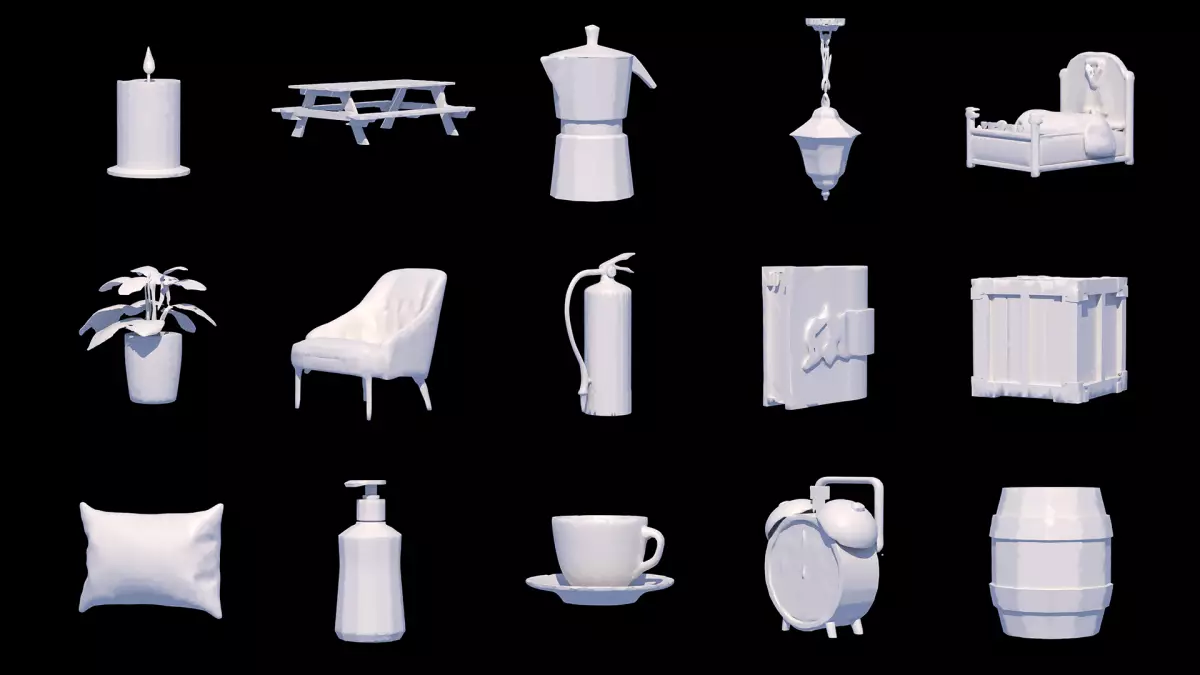In a move that has the potential to transform the landscape of game development, Roblox announced the launch of its pioneering generative AI model, “Cube,” poised to empower creators with new capabilities for crafting intricate 3D objects. The advent of this feature is not merely an incremental update; it signifies a bold leap towards democratizing game development. With Cube, Roblox invites a broader array of developers—from novices to seasoned veterans—to reimagine and expand their creative horizons.
Unleashing Creators with Mesh Generation
At the heart of Cube’s offerings lies a powerful mesh generation tool, currently available in beta. This feature allows creators to generate detailed 3D representations from simple text prompts. For example, a developer could input a straightforward command like “generate an orange racing car with black stripes” and watch as the AI breathes life into the request. This level of accessibility could redefine what it means to create within the Roblox ecosystem, breaking down traditional barriers and enabling a more intuitive approach to game design.
The significance of mesh generation cannot be understated. Traditionally, crafting 3D models requires a combination of technical skill and artistic vision, often relegating it to specialized artists and developers. However, Cube enables anyone with a creative idea to manifest their vision swiftly and efficiently. As a result, budding developers could launch ambitious projects without needing advanced skills in modeling software, which may have previously deterred them from fully engaging with the platform.
Open-Source Philosophy: A Collaborative Future
Roblox’s commitment to openness by releasing an open-source version of Cube is commendable. This move not only fosters a sense of community among developers but also encourages collaboration, customization, and innovation. Developers outside the Roblox platform can create plugins or modify the Cube model with their datasets, tailoring it to fit their unique needs. This environment engenders a spirit of collaboration, allowing creators to enhance one another’s work and push the boundaries of what is possible within 3D design.
This collaborative ethos resonates with many creators who thrive in shared spaces where ideas flourish. By enabling developers to share their adaptations and enhancements, Roblox shows a willingness to prioritize communal growth over siloed advancements. Such a shift could enhance the collective creativity of the entire gaming ecosystem, resulting in richer and more diverse gaming experiences that benefit players everywhere.
Expanding Beyond 3D: Advanced AI Tools on the Horizon
In addition to mesh generation, Roblox is set to unveil three additional AI tools: text generation, text-to-speech, and speech-to-text. These functionalities will allow developers to elevate gameplay through engaging narratives and interactive characters. Imagine a player conversing with an NPC that not only responds in real-time but does so in a voice that echoes their personality, further immersing them into the game’s world.
Text generation will enable developers to craft complex dialogues for NPCs, giving a new layer of realism to player interactions. Furthermore, the speech-to-text functionality opens up new avenues for accessibility, allowing players with differing abilities to navigate games using voice commands. These advancements signal a broader understanding of player diversity and the need to create inclusive gaming environments.
The Future of AI Integration in Gaming
Looking ahead, Roblox’s ambition extends towards truly immersive experiences through “4D creation,” which they describe as an interaction between objects, environments, and players. With intentions to roll out tools for more complex mesh generation and environment scene creation, Roblox is innovating not just for the present but for the future of gaming. The prospect of players utilizing simple prompts to create entire ecosystems—themes changing with the seasons, unique landscapes, and vibrant worlds—shows an understanding that gaming is inherently about exploration and creativity.
However, the rise of generative AI tools does evoke discussions concerning the future of job security within the gaming industry. As indicated by studies estimating that a significant portion of gaming jobs may be impacted by AI, the community faces a dual challenge: to embrace technological advancement while safeguarding employment. While AI can vastly improve efficiency and creativity, it is essential for industry players to balance these innovations with the needs of the human workforce, ensuring that development remains a collaborative process between humans and technology.
Roblox’s launch of Cube is more than just a new tool; it represents a paradigm shift in game design and development. This accessibility, combined with community-driven adaptability, promises to usher in a new era in gaming innovation—where imagination truly knows no bounds.

